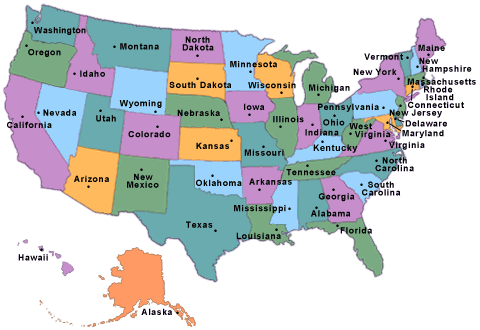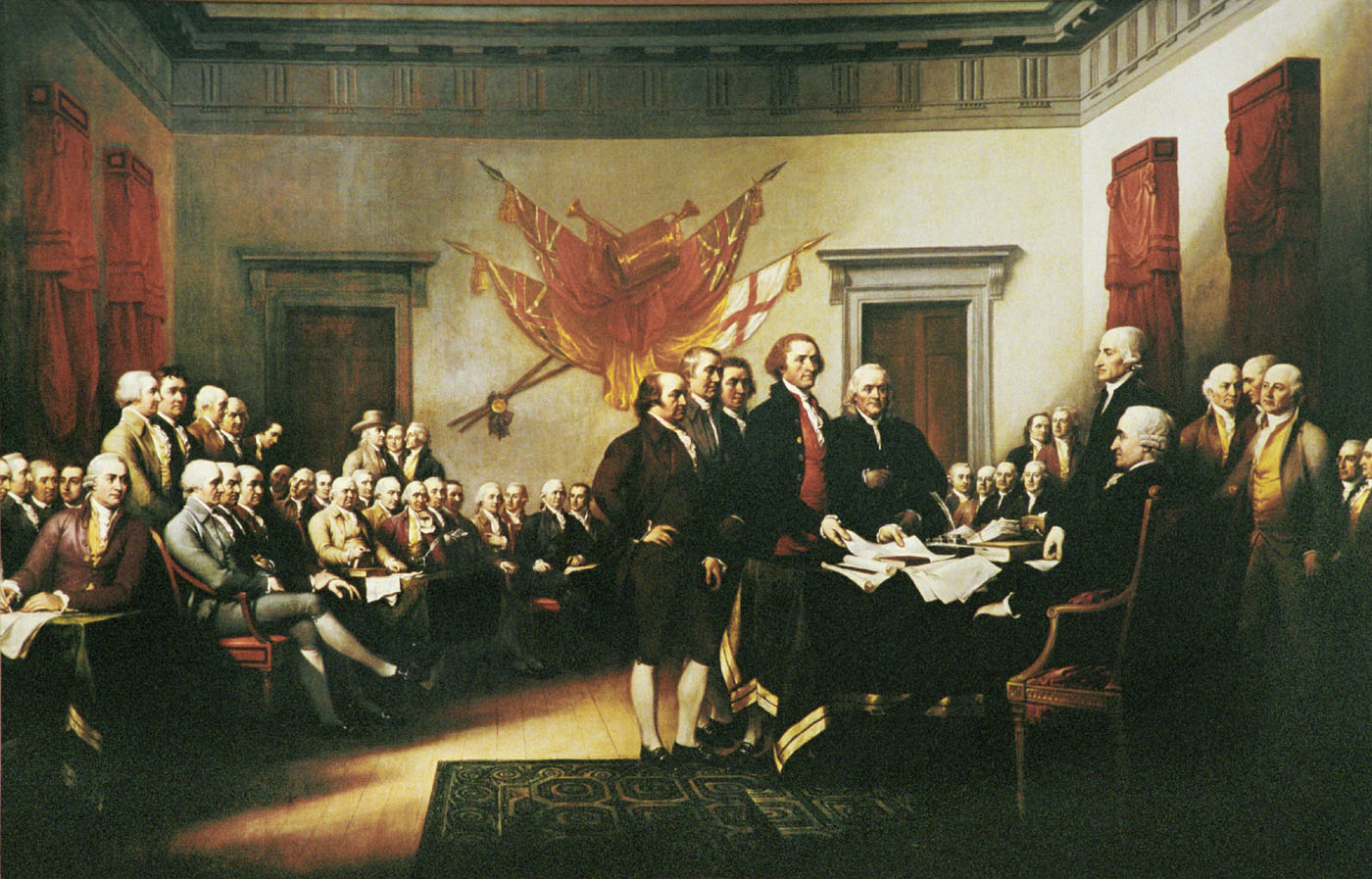87 years. Really, had it only been eighty-seven years since fifty-six men had pledged their lives, fortunes, and sacred honor? Was it really possible that there were men and women whose first memories were that of muskets firing at Redcoats had some of their last be of cannons firing at Rebels?
"...our fathers brought forth on this continent a new nation..."
A new country. A republic, unlike the monarchies, principalities, and empires of Europe and Asia. This was a republic in a New World
"...conceived in Liberty..."
A country whose goal was freedom from a European power. Free to be represented in the government. Free to choose their leaders. Free to travel where they wanted. Freedom!
"...and dedicated to the proposition that all men are created equal."
All men? Powerful words to be written by a slave owner such as Jefferson. But now, maybe, just maybe, the bloody conflict raging from Virginia to New Mexico would create a path for all men in this country to be seen as equal. Yes, all men had been created equal, but this country did not yet treat them as such.
 "Now we are engaged in a great civil war..."
"Now we are engaged in a great civil war..."Father against son, brother against brother, neighbor against neighbor. The house was divided, and this way it could not stand. And who would win?
"...testing whether that nation, or any nation so conceived and so dedicated, can long endure."
Oh, how Europe watched in interest as the American conflict raged. Would this experiment in a republic last? Or, like Rome, would the civil war cause it to fall?
"We are met on a great battle-field of that war."
A great battlefield. This would become the great battlefield. Those three early July days cost the lives of over 50,000 men. It was the bloodiest battle of the war. Big Round Top. Little Round Top. Seminary Ridge. Cemetery Ridge. Devil's Den. Peach Orchard. Wheatfield.
 |
| Gettysburg Battlefield |
 |
| My friend Cody and I at Gettysburg |
And such a small portion that is. You walk the battlefield, see the memorials, tour the museum, imagine the carnage. And then the cemetery is such a small part, almost insignificant in comparison to the expanse of the Gettysburg Battlefield.
"...for those who here gave their lives that this nation might live."
And the nation has lived. The lives of these Union soldiers were not spent in vain.
"It is altogether fitting and proper that we should do this."
And thank you for doing this. Some may take it as a mere tourist attraction, but for a few, this battlefield represents a war that divided a nation so it could be united stronger than before. No longer would the United States be plural but singular. The war took the country from being an "are" to being an "is."
 |
| Pennsylvania Memorial |
We are setting it aside, but why is this even possible? Who did already dedicate this ground?
 |
| Iron Brigade Memorial |
Those thousands of lives had already dedicated this ground. They proved the North would fight when invaded. Not all the men had chosen to fight, some had been drafted, but they had still accepted their lot in life and fought, and as such became part of the great struggle to preserve or destroy the Union.
 |
| Edward Everett's Speech |
Oh sweet precious irony! These words are still memorized by schoolchildren one hundred fifty years later. Mr. Edward Everett's two hour speech lies largely forgotten, but Lincoln's two minute speech (or as much as we could piece together) is forever preserved and recited. We remembered what was said there that November day.
 |
| Devil's Den |
We cannot forget. We must not forget. If we forget history, we are doomed to repeat similar circumstances. As history is pushed more and more aside in American education, will one day the sacrifices of Gettysburg, of the whole Civil War, of all wars, be forgotten to satisfy some legislation's vision of what children should learn? NEVER forget the past.
 "It is for us the living, rather, to be dedicated here to the unfinished work which they who fought here have thus far so nobly advanced."
"It is for us the living, rather, to be dedicated here to the unfinished work which they who fought here have thus far so nobly advanced."How much war was left at this point? No one could know. The victories at Gettysburg and Vicksburg had turned the tide in the Union's favor, but the South still fought.
"It is rather for us to be here dedicated to the great task remaining before us..."
A task that would drag on for another two years and thousands more lives
America was to fight in memory and honor of those who served at Gettysburg, who had fought until their last breath or the final bugle called them off the field. They fought until the battle was over.
"...that we here highly resolved that these dead shall not have died in vain..."
These lives were not to have been useless wastes. Many could have had decades ahead of them, but had their lives cut short. But they had fought for a cause--that the United States was one, and that no man needed be a slave.
 "...that this nation, under God, shall have a new birth of freedom..."
"...that this nation, under God, shall have a new birth of freedom..."And America would rise after four years of conflict as a united country under one flag. The Revolutionary War had granted America its freedom from Britain, but this war would create a nation to see the need to work as a unit--North and South, East and West, black and white, rural and urban, factory and farm. Their diversity would become their strength. E pluribus unum. And this nation would not be able to endure if it were not for the all-powerful God, Sovereign over all nations, choosing to keep it together. "In God We Trust."
"...and that the government of the people, by the people, for the people..."
The people make a democracy. We, although often deceived by empty promises and flashy campaigns, choose the leaders. We call on these men and women to make the decisions we desire. We can write and lobby them with what we feel as important. We have a voice.
"...shall not perish from the earth."
Oh, all things will end, but a republic does not end unless the people want it to. It is your job, my job, every American citizen's job, to keep our country running. And this cannot be done without a reliance upon God to guide the country. God creates and destroys nations, and the only way to make this nation endure is to rely upon Him--not upon politicians and petitions and protests, but upon the Prince of Peace.
 |
| Lincoln leaving stage after giving Gettysburg Address |


No comments:
Post a Comment